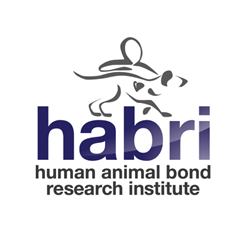
More data demonstrating the benefits of service dogs for autistic individuals will empower families to make more informed decisions regarding how to support the health and wellbeing of their family.
WASHINGTON (PRWEB)
November 02, 2022
The Human Animal Bond Research Institute (HABRI) announced funding for a new research project to evaluate the impact of a service dog training program and service dog matching on autistic children and their families. This grant was awarded to Gretchen Carlisle, Ph.D., at the Research Center for Human-Animal Interaction, University of Missouri College of Veterinary Medicine.
One in 44 children in the United States is estimated to be born with autism spectrum disorder. Autistic children may have differences in social interaction and communication, and may also struggle with comorbid conditions such as anxiety. Behavioral care and supportive interventions are key to aiding autistic children and their families. Scientific research demonstrates the benefits of dog ownership for autistic children and their families can include increased social skills and reduced family stress, yet there is a lack of research on the potential benefits of service dogs for this population.
“Service dogs represent a relatively new yet increasingly popular approach for assisting families that include an autistic child,” said the study’s Principal Investigator, Dr. Carlisle. “This research will further our understanding of the impact of these dogs on the health and wellbeing of autistic children and their families.”
Preliminary research conducted by Dr. Carlisle highlights the importance of families viewing their pet dogs as a good match with their children, for the families to experience benefits. Service dogs, with a high level of training and predictable calm temperament, are theorized to be more likely to be accepted as a good match by a family that includes an autistic child. This study will use a cross-sectional survey of parents of autistic children. Data collected will be used to compare those who are on a waitlist to receive a service dog, those who are in the training process to be matched with a service dog, and those who are already matched with a service dog. A longitudinal study will also be conducted following parents of autistic children as they progress from the waitlist through the training process and up to one year after matching with a service dog.
“We expect to find autistic children and their families will benefit from participating in a service dog training program and being matched with a service dog, including displaying reduced symptoms of autism, lower anxiety, and improved family function,” explained Dr. Carlisle. “It is our hope this research can be used to inform service dog training organizations and parents considering a service dog for their autistic child.”
“More data demonstrating the benefits of service dogs for autistic individuals will empower families to make more informed decisions regarding how to support the health and wellbeing of their family,” said Steven Feldman, President of HABRI. “HABRI is proud to fund this project from the University of Missouri, which we hope will provide new evidence supporting the human-animal bond as a source of comfort and support for autistic children.”
About HABRI
HABRI is a not-for-profit organization that maintains the world’s largest online library of human-animal bond research and information; funds innovative research projects to scientifically document the health benefits of companion animals; and informs the public about human-animal bond research and the beneficial role of companion animals in society. For more information, please visit http://www.habri.org.
Share article on social media or email:

